41 higher frequency hearing loss
High frequency hearing loss: Causes, treatment, and more High frequency hearing loss is a hearing disorder that can affect people of all ages. Exposure to harmful sounds that are loud or long lasting can cause high frequency hearing... [The application of extended high frequency audiometry in detecting the ... The differences of the hearing without detection rate between the pre-treatment and the post-treatment day were statistically significant(P <0.05).Conclusion:The extended high frequency may be more sensitive in evaluating the early hearing loss for thalassemia.
20 Best Hearing Aids For High Frequency Loss (2022 Updated) 1. Eargo Neo HiFi - Virtually Invisible, Rechargeable Hearing Aid, Black. Virtually invisible hearing aid that fits inside the ear canal, hidden from the outside world.Comfortable. New Flexi TetraPalms feature a fourth layer of ultra-soft Flexis for all day comfort and improved sound quality.High-fidelity audio.

Higher frequency hearing loss
What is High-Frequency Hearing Loss? In addition to being classified by level of severity and cause, hearing loss can be divided into one of two broad categories.. High-frequency hearing loss means you have difficulty hearing sounds ranging from 2000-8000 Hz. Examples may include a child's voice, birdsong, and high-pitched instruments such as the flute or violin. High Frequency Hearing Loss - YouTube Dr. Lou Cheek of Adobe Hearing Center discusses the benefits of hearing aids for people with high frequency hearing loss. Could You Have High Frequency Hearing Loss? Know The Signs - WebMD High frequency hearing loss is a condition that occurs when the ear becomes unable to hear high-pitched sounds. According to the Hearing Rehab Center, "aging, noise exposure, and medical...
Higher frequency hearing loss. What Is A Normal Human Hearing Range? The Answer Might Surprise You Age-related hearing loss: Some older people begin to gradually lose their ability to hear sounds higher than 2,000 Hz around 50 or 60 and have difficulty understanding certain speech sounds. High-frequency conductive hearing loss: Chronicmiddle ear infections and defects of the middle ear bones may cause high-frequency hearing loss. What Is High-Frequency Hearing Loss? - Starkey Hearing Technologies An audiogram for high-frequency hearing loss shows hearing within the range of normal from 250 Hz - 1500 Hz, with results falling outside the range for normal hearing around 2000 Hz. High-frequency hearing loss makes it challenging to understand speech. Individuals with high-frequency hearing loss have difficulty understanding speech in noise ... High-frequency hearing loss: Can hearing aids help? - Mayo Clinic Answer From Cynthia Hogan, Ph.D. Yes. Hearing aid manufacturers continue to make improvements by developing hearing aids that are more effective for all types of hearing loss, including high-frequency hearing loss. The advent of digital technology in the mid-1990s resulted in significant hearing aid improvements. High-Frequency Hearing Loss Effects and Causes - Verywell Health A high-frequency hearing loss will affect a person's ability to understand speech. This happens because the consonants (s, h, f) are high-frequency sounds that range from 1,500 to 6,000 Hertz. Losing hearing in those frequencies means that those sounds are harder to discern.
Do Hearing Aids Help High-Frequency Hearing Loss? - Hear-Better What Factors Causes High-Frequency Hearing Loss? Well, there are some common factors that can actually result in high-pitch hearing loss. Let's find the details. Aging. Of course, it is the most common reason that triggers high-pitch hearing loss, about 1 out of 3 persons between the age of 65 and 75 observe hearing loss. The figures clearly ... High-Frequency Hearing Loss | San Diego Hearing Center | Blog One of the most common types of hearing loss is high-frequency hearing loss. People in San Diego and around the country with this condition have trouble hearing sounds in the 2,000 to 8,000 Hz range. This typically prevents individuals from hearing s, h or f sounds as well as women and children. Other sounds these individuals typically miss out ... High-frequency hearing loss: What is it and how is it treated? High-frequency hearing loss occurs when the tiny hair-like sensory hearing cells in your cochlea (inner ear) are damaged. These hair cells, known as stereocilia, are responsible for translating the sounds your ears collect into electrical impulses, which your brain eventually interprets as recognizable sound. Learn more about how we hear. Here's What You Need to Know About High-Frequency Sensorineural Hearing ... High-frequency sensorineural hearing loss causes problems with hearing high-pitched sounds — frequencies of 2,000 Hz or higher. It can affect people of all ages, but is commonly connected to age-related hearing loss, or hearing loss due to a one-time loud noise exposure.
High Frequency Hearing Loss Treatment: Know Your Options - WebMD High frequency hearing loss is sensorineural which means it happens when delicate outer hairs of your inner ear get damaged. This damage can happen due to: Aging Ear injury or infections... High-Frequency Hearing Loss: Causes and Treatment Options Hearing loss affects nearly 1.5 billion people worldwide. While a total loss of hearing may never occur, losing a portion of your hearing can change how you communicate and may even be hard to detect. Let's talk about high-frequency hearing loss, which involves the loss of only a certain portion of your hearing. 20Q: Extended High Frequency Hearing Loss - AudiologyOnline Frequencies above 8 kHz, therefore often are termed as extended high frequencies (EHFs) or ultra- or very-high frequencies. Typically, the audiometric test frequencies for this region are 10, 11.2, 12.5, 14, 16, and 20 kHz. The specific frequencies available, however, may depend on the make and model of the audiometer. 2. High vs. Low-Frequency Hearing Loss - HearingPlanet High-frequency hearing loss refers to difficulty hearing sounds in the 2000-8000Hz range. It's the most common type of hearing loss by far, likely in part because the stereocilia that convert high-frequency sound to sound waves tend to be more delicate. It's incredibly common in both noise-related hearing loss and age-related hearing loss.
High Frequency Hearing Loss: Causes, Risk Factors, and Treatments High frequency hearing loss causes problems with hearing high-pitched sounds. It can also lead to problems understanding fast speech. Damage to the hair-like structures in your inner ear can...
High Frequency Hearing Loss: Symptoms, Causes, & Treatment High frequency hearing loss is one of the most common types of hearing loss. Although it can affect people of any age, it is more common in older adults and people exposed regularly to loud noises. Specifically sounds in the frequency range of approximately 2,000 Hertz (Hz) and 8,000 Hz become difficult to hear.
High Frequency Hearing Loss | Boots Hearingcare High frequency hearing loss means that you might have difficulty understanding speech, particularly when people talk quickly, as well as differentiating between different sounds (especially in loud areas or places with a lot of background noise). You might also find it hard to hear: Alerts on your phone Doorbells Children's voices Women's voices
Obstructive Sleep Apnea-Hypopnea Syndrome closely linked to high ... The meta-analysis reveals that the OSAHS group has a higher threshold of 0.25 and response amplitudes at frequencies 2, 4, and 8 kHz are all greater than those of the control group after stratifying the included studies according to hearing frequency.
High-frequency hearing loss - Causes, symptoms and treatment High-frequency hearing loss can be caused by a wide range of health and lifestyle factors. Causes of high-frequency hearing loss include: Aging Genetics Exposure to certain drugs Syndromes Diseases Noise exposure Low-frequency hearing loss Preventing high-frequency hearing loss
High-Frequency Hearing Loss | Types | Symptoms | Diagnosis | Treatment High-frequency hearing loss is a condition that leads to issues with hearing high-pitched sounds. Some studies also show that damage to the hair-like structures that are present inside the ear can lead to a certain type of hearing loss. This clinical condition can be developed in anyone, but the risk increases with aging.
High-frequency hearing loss - See symptoms, causes & treatment A high-frequency hearing loss is typically a sensorineural hearing loss, which is a hearing loss normally caused by damage to the hair cells in the inner ear that receives the sounds and convert them to signals that are transmitted to the brain by the auditory nerves. Get your hearing checked
Could You Have High Frequency Hearing Loss? Know The Signs - WebMD High frequency hearing loss is a condition that occurs when the ear becomes unable to hear high-pitched sounds. According to the Hearing Rehab Center, "aging, noise exposure, and medical...
High Frequency Hearing Loss - YouTube Dr. Lou Cheek of Adobe Hearing Center discusses the benefits of hearing aids for people with high frequency hearing loss.
What is High-Frequency Hearing Loss? In addition to being classified by level of severity and cause, hearing loss can be divided into one of two broad categories.. High-frequency hearing loss means you have difficulty hearing sounds ranging from 2000-8000 Hz. Examples may include a child's voice, birdsong, and high-pitched instruments such as the flute or violin.















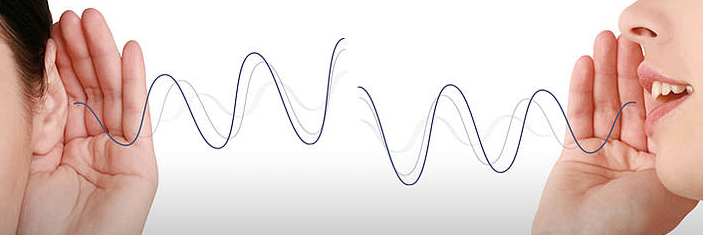
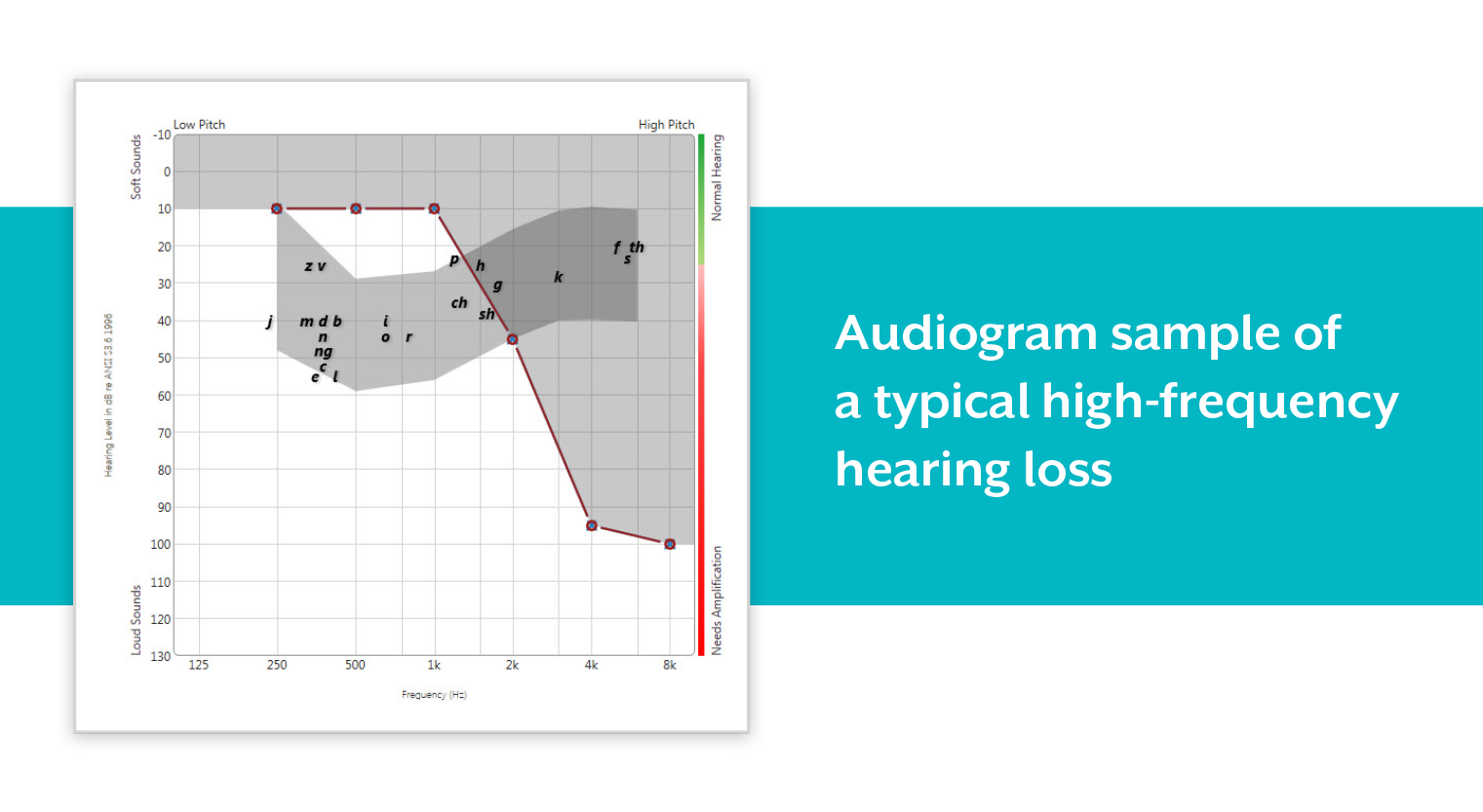

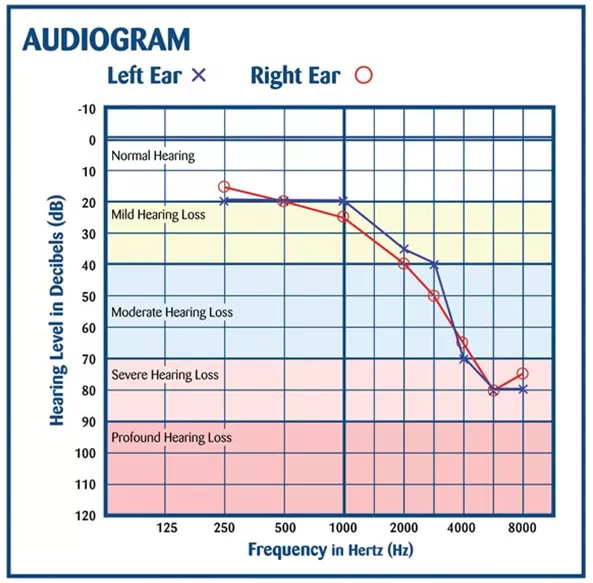
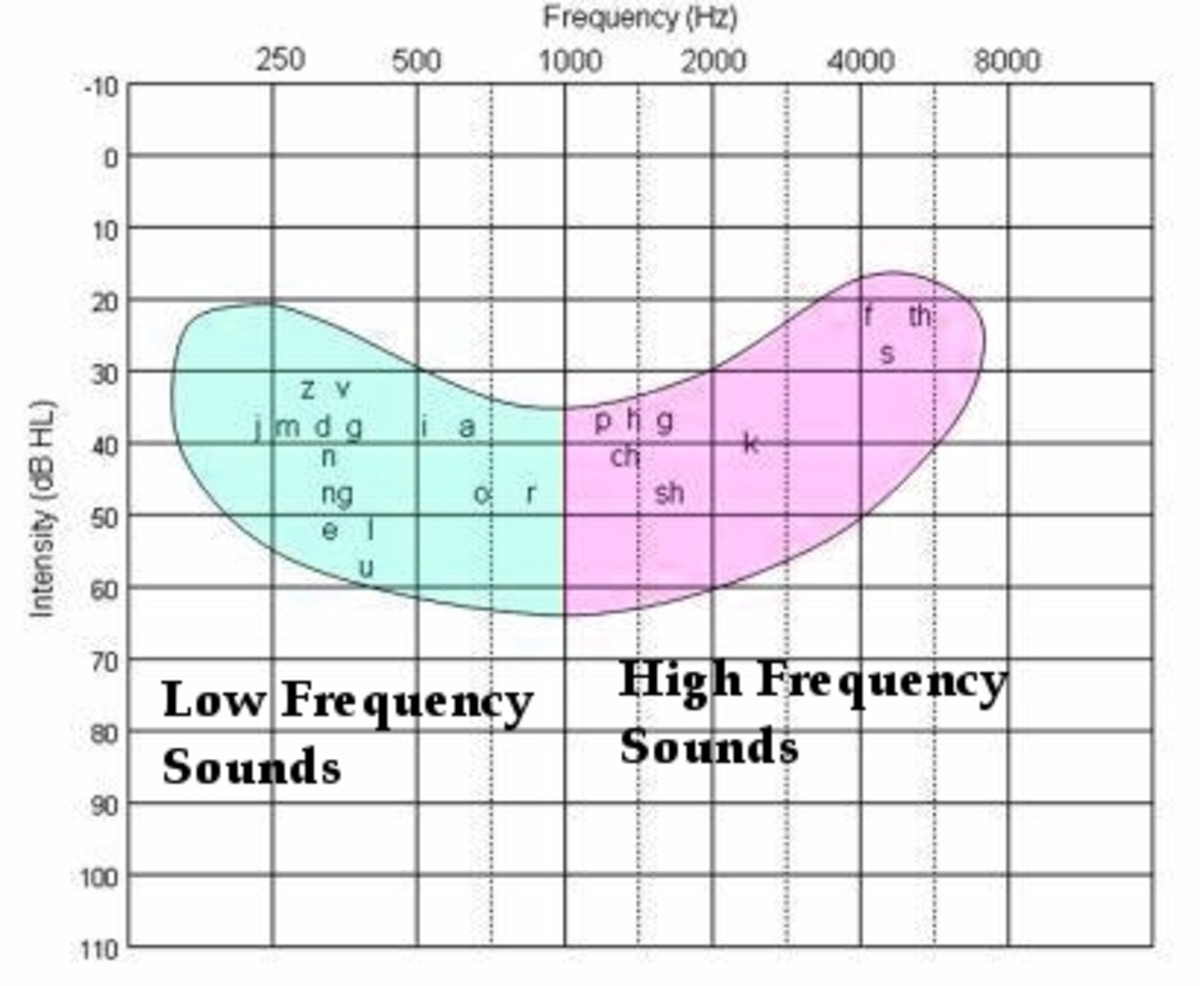
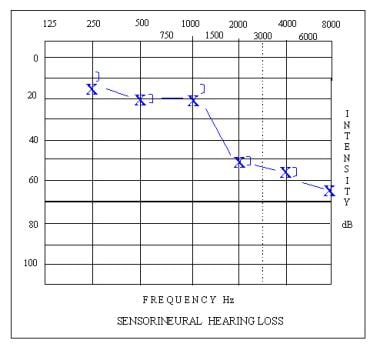



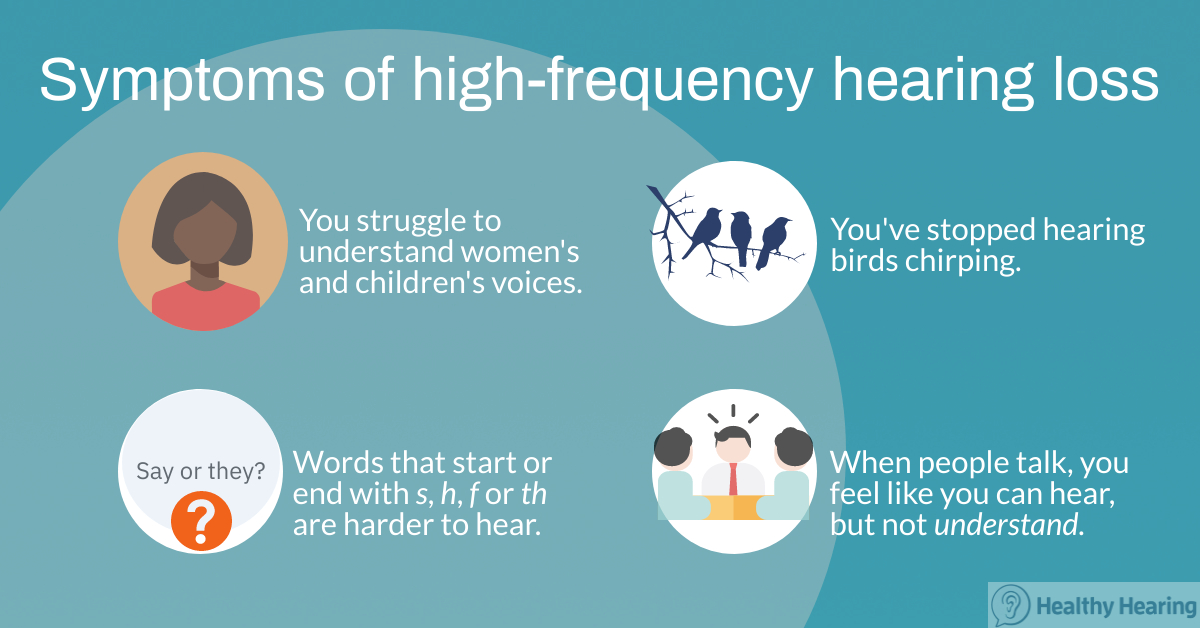



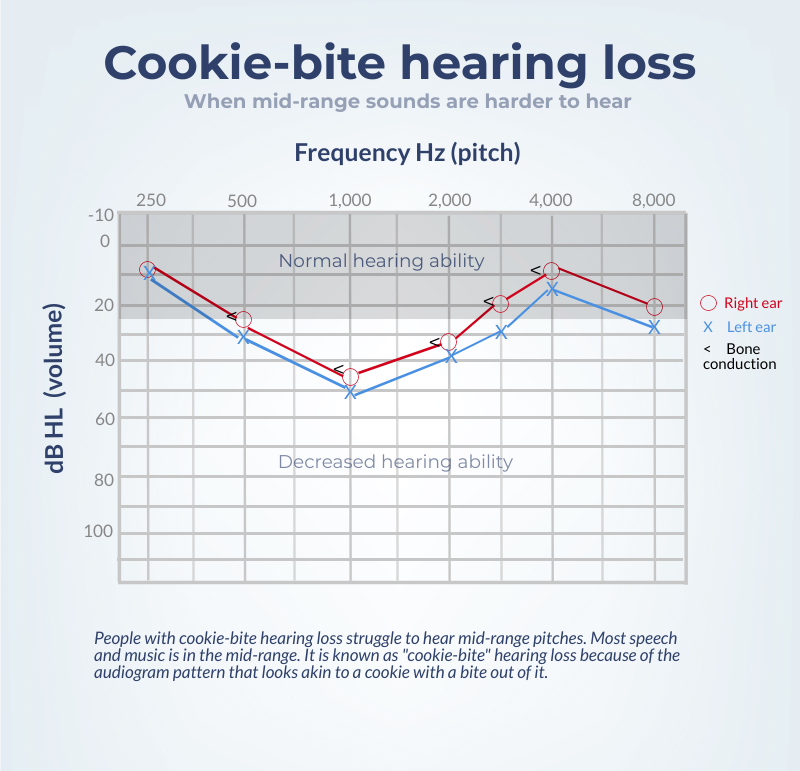
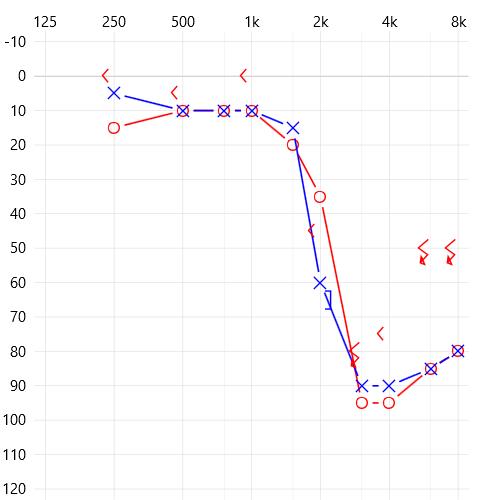

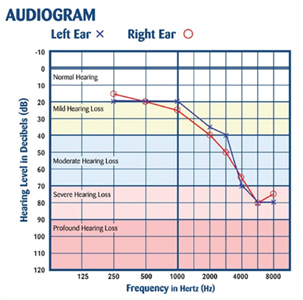
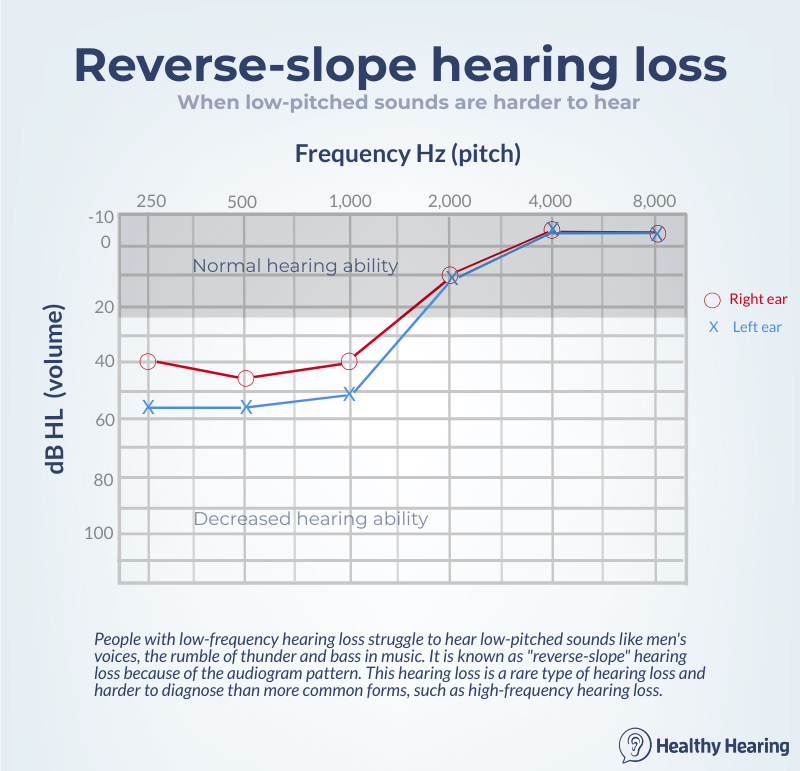
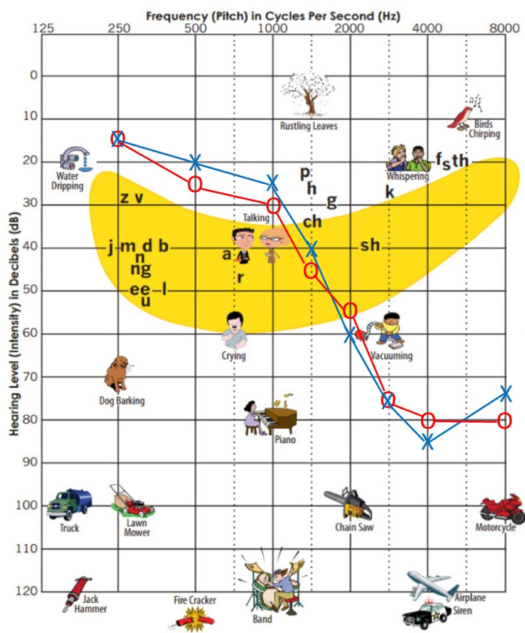
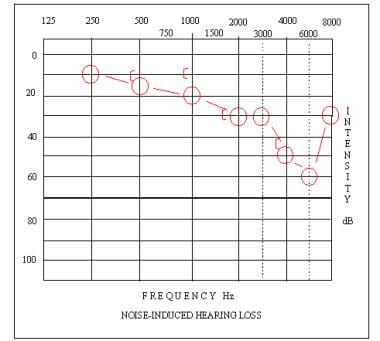
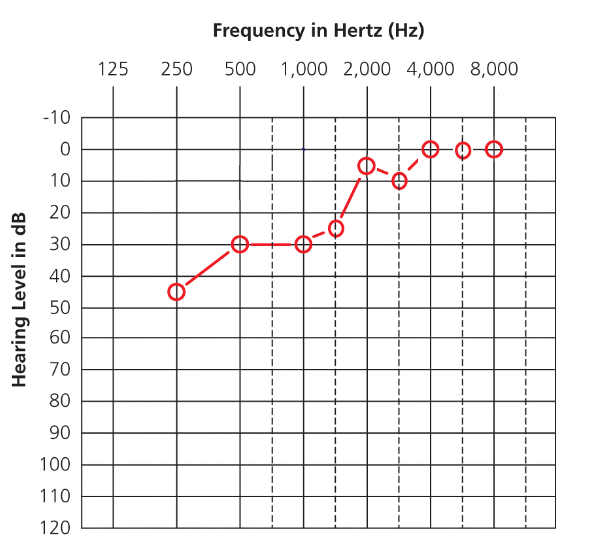

0 Response to "41 higher frequency hearing loss"
Post a Comment